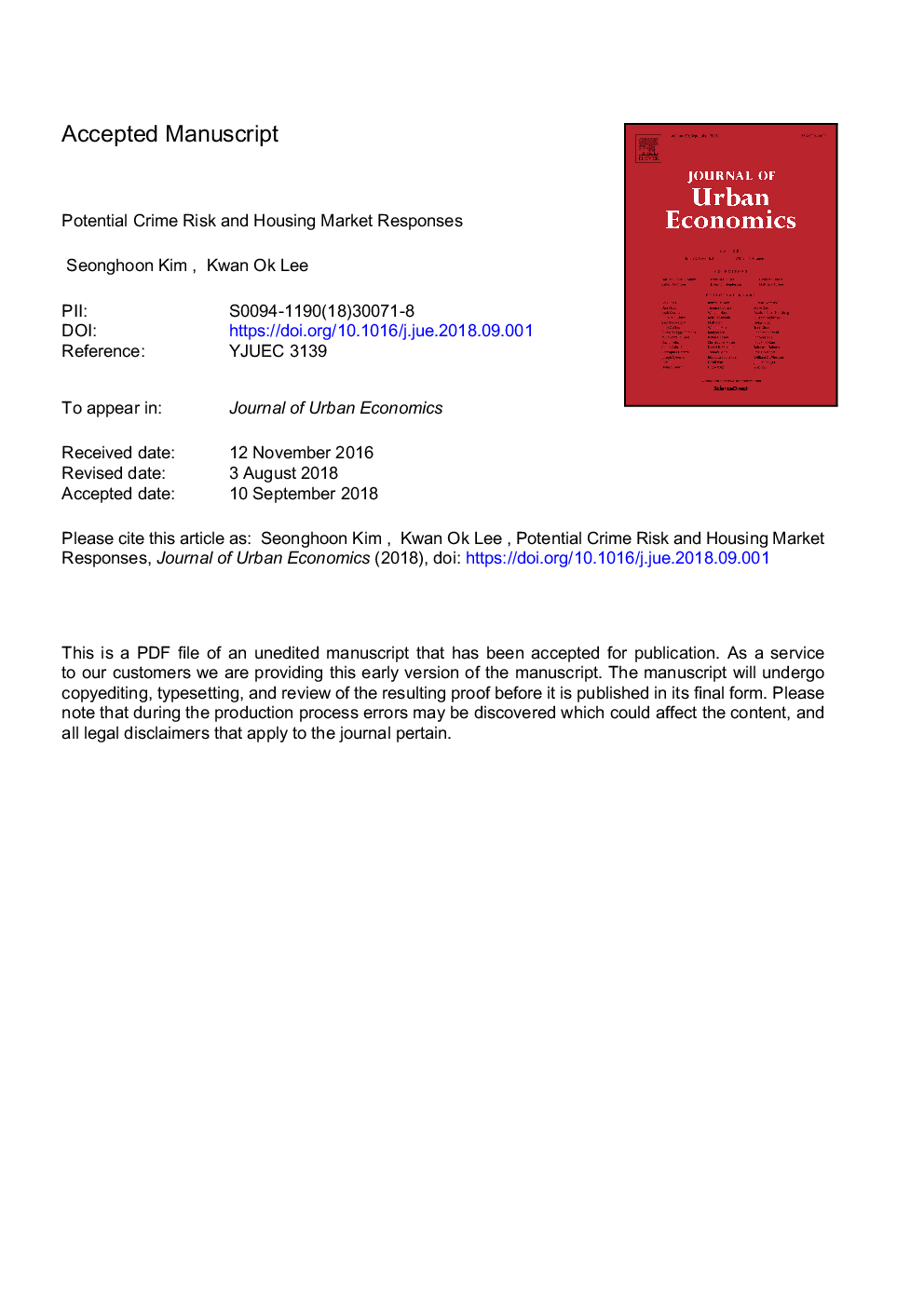| Article ID | Journal | Published Year | Pages | File Type |
|---|---|---|---|---|
| 11020444 | Journal of Urban Economics | 2018 | 53 Pages |
Abstract
We study how information on local (dis)amenities is transmitted and manifested in housing markets. Using nationwide data on multifamily homes in South Korea, we analyze heterogeneity in the effect of a sex offender's presence on sale prices and rents of nearby homes. Our results demonstrate that the price effect of the offender's move-in varies significantly by spatial context. People react more strongly and persistently to the move-in of the offender in places wherein indicators of social connectedness are stronger, such as places with relatively low population density. We also find that, unlike housing prices, rents do not change in response to the move-in of a sex offender. These heterogeneous housing market responses may be attributed to better acquisition of and higher sensitivity to information on local (dis)amenities among (potential) members in highly connected communities, particularly among homeowners. We interpret our findings as suggestive evidence that social capital and social networks are important sources of information on local (dis)amenities.
Related Topics
Social Sciences and Humanities
Economics, Econometrics and Finance
Economics and Econometrics
Authors
Seonghoon Kim, Kwan Ok Lee,
